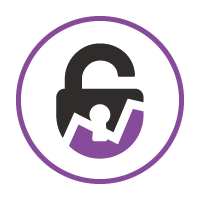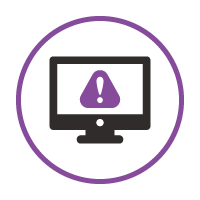
Government
National and local governments face the urgent need to modernise their operations and deliver better services to their residents. Our software solutions are tailored to meet the unique challenges and demands of this sector.
With our vendors, we can assist your customers with digital transformation, improving their data security, preparing for new legislation, and more.
Introducing DORA
Legislation changes for you and your customers!
DORA stands for The Digital Operational Resilience Act – Initiated January 2023, and expected to be compliant with the regulation by early 2025. It’s a new European framework that focuses on embedding a more robust and resilient security approach to delivering digital capabilities within the financial markets – including third party ICT providers of this sector.
DORA specifically refers to ICT risk and sets rules on the following:
- ICT risk-management
- Incident reporting
- Operational resilience testing
- ICT third-party risk monitoring
- Information sharing
Get in touch with one of our experts today to find out how, with our vendors, Climb can help your customers get ready for DORA!
Achieving DORA compliance helps your organisation:
Reduce the chance of a cybersecurity attack
Recover your environment fast and effectively
Avoid non-compliance fines and penalties
What are the security risks?
The requirement for local governments to digitise their operations and services is upon us. With this, this sector faces a multitude of security risks that require proactive and comprehensive solution tools to ensure the safety, privacy, and integrity of our sensitive data and services.
We’ve compiled the key security risks that organisations within the government sector may encounter, and offer insights into effective measures your customers can take.
Click the images below to reveal.
Digital Transformation: Unlocking government potential
45% of organisations are scaling up their cloud capabilities, 39% AI and 36% IoT*
Historically, government and associated organisations persevere with the technology and processes they have in place for two main reasons:
- They’re unsure of what they need
- They don’t have the skills in-house to implement and manage new technology
Take a look at some of the benefits – these can be great conversation starters with your customers on why digital transformation is worth the investment.
*Source: Accenture
Enhanced service delivery
Online portals, mobile apps, and self-service platforms allow residents to access a range of services from anywhere, reducing the need for in-person visits.
Reliable decision making
Equip local government with data analytic tools that provide insights into community needs, preferences, and trends. Make informed decisions based on reliable data.
Cost savings
Efficiencies gained from digital transformation often translate to cost savings. Reduced paperwork, streamlined processes, and optimised resource use contribute to lower operational costs.
Improved efficiency
Automation of processes reduce manual workloads and administrative bottlenecks. This leads to faster response times, fewer errors, and more efficient resource allocation.
Shared databases, integrated systems, and secure communication tools improve coordination between departments.
Transparency & accountability
Digital platforms enable local governments to share information openly with their residents, fostering transparency and building trust.
Sustainability
Smart city technologies enable local governments to manage resources more sustainably. Smart energy management and environmental monitoring contribute to creating greener communities.
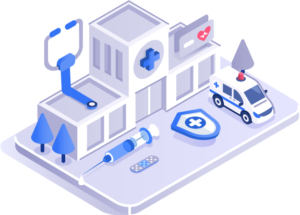
Healthcare
The NHS is experiencing huge challenges from key areas such as funding gaps, organisational change, the new Integrated Care System (ICS) structures, along with associated targets, waiting lists, digital transformation and the demand for patient-centred care.
The size and complexity of the NHS estate means that digital transformation is essential, with technology playing a critical role in supporting the NHS internally as well as externally with 75% of the UK population going online to find healthcare information. (Source: Deloitte).
Benefits of Technology in Healthcare
Supports Leapfrog Technology
Covid allowed IT to introduce “leapfrog” technology to support patients and clinicians in extreme situations.
Supports New ICS Structure
New 42 ICS trusts are designed to bring together and improve the NHS for patients and those working within it.
Supports Data Driven Systems
Data driven systems are designed to support clinical decision making for pressured clinicians and improve patient outcomes.
Delivers Health Population Data
Healthcare population statistics are required for ICS standard reporting. In turn this supports better forecasting of services and resource requirements.
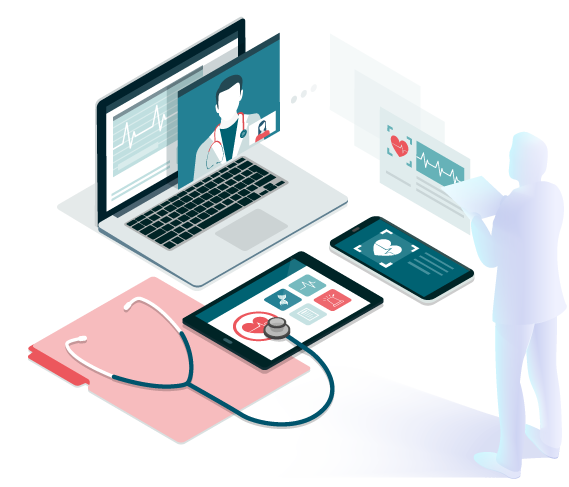
IT Challenges within Healthcare
Digital Transformation is a key theme within healthcare, keen to grasp the benefits of self-service portals, cost efficiencies, joined up communications, systems and processes.
Increasingly IT is seen as a key driver in solving some of the issues associated with waiting lists, bed blocking, emergency care, digital wards and developing care pathways.
Large scale programmes
These are often costly and can take many years to complete.
Interoperability
Or the lack of it, exists with proprietary systems which do not talk easily to one another.
Lack of IT skills
A chronic shortage of IT skills and developers within the healthcare sector.
Security
The NHS IT estate is twice as likely to be attacked compared to any other industry.
But increasingly Digital Transformation is seen as a cultural as well as a technological shift with early clinical engagement essential in creating systems designed to support clinical decision making rather than hindering it.
Medical Imaging & AI
The Government’s recent £21m investment into AI considers how healthcare professionals can work with it to reduce the daily administration, validation and low-level decision-making tasks to become more efficient.
Medical imaging records require a huge amount of data and storage, with the volume growing exponentially. Managing, storing and being able to analyse these records is a significant burden for most healthcare settings.
Challenges with medical imaging:
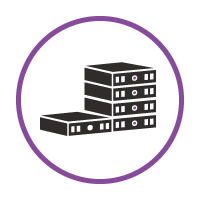
Scalable
capacity
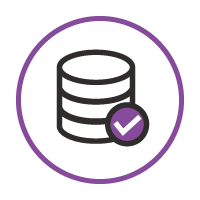
Storage
efficiency
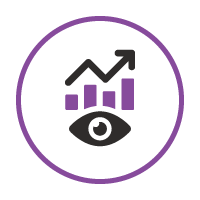
Predictable performance
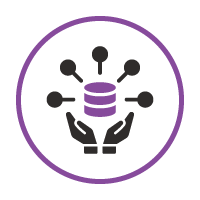
Ease of Management
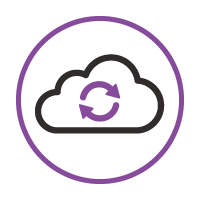
Integrated
backups
An array of storage solutions and tools exist to help organisations proactively map and manage data in an efficient way. Driving down the costs associated with data storage, backup and movement of data. Irrespective of whether this is in the cloud, on-premises or across hybrid environments.
Security
The Wannacry and Advanced NHS cyber-attacks have highlighted the fact that the healthcare industry is twice as likely to receive an attack compared to any other industry. This is largely due to the size and relative immaturity of its IT estate.
The Government has developed a new Cybersecurity strategy which it wants to implement across the NHS by 2030.
Key emerging technologies within cybersecurity include AI enabled deep learning, immutability, backup and fast recovery.
Reduced storage costs mean that healthcare providers can benefit from a suite of best-in-class emerging technologies from Climb and their vendors.
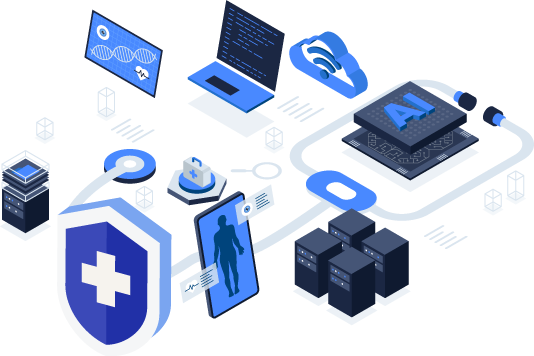

Education
The education sector has made large investments into its digital transformation since 2020 to prepare for remote learning. A considerable influence in this sector (as in many others) is cloud technology; it is predicted that within higher education the market growth will increase at a rate of 22% in the forecast period 2022-2027, according to The Bite News.
Check out Climb’s top software tools for education that students, educators, and administrators will love.
Cloud Technology
The cloud has become a popular solution for education, whether in primary or higher education and in the workplace. Some of the benefits of cloud solutions include:
Online resources
Educational videos and recorded lessons can be stored for students to use and re-visit. These can be accessed at any time by the student, allowing them to catch up on work easily.
Up-to-date materials
The cost of textbooks often means they are inaccessible for some students. By uploading resources to the cloud, students work with the same, up-to-date information.
Accessibility
For some, attending school is not an option for several reasons. Having resources and classes available online means schools, colleges and universities can offer education to more students.
Paperless
Many education facilities and workplaces are moving to a more sustainable way of teaching. Having one space online for all resources and an area to submit work helps them become more environmentally friendly
Collaboration
Cloud technology allows students and staff to access files simultaneously. This means collaboration on projects can happen no matter where the user is based, which creates a more efficient process.
Growth
Cloud solutions allow education facilities to give access to as many students as they want. Whether your customers have 1 or 1000 users, it is easy to access the cloud and grant access to those who need it.

74%
of cyber-attacks on colleges and
universities have been successful
Source – bityft
16%
of known ransomware attacks targeted the education sector in the UK between April 2022 and March 2023
Source – Malwarebytes
Types of Software Management
Education organisations need security solutions to ensure students, staff and their data is protected. Since the introduction of remote learning it has become even more important as students are accessing information from their own homes and devices.
Multi-factor Authentication (MFA)
Use MFA wherever it is offered to you. This adds an additional layer of security after you enter your username and password.
Use strong passwords
Make sure passwords are complex using a mixture of letters, numbers and characters. Using significant names or dates is not safe as a hacker could have this information.
Links and attachments
Be careful when opening any links or attachments sent to you. These are no longer just through emails, this could be social media, SMS, chat platforms and other online areas.
Think before you share
Be cautious about what information you allow apps to access, don’t give away personal details on social media and think before you share private photos with someone.
Lock your files
Make sure your devices are password protected and if you’re using the cloud to store files, have you properly secured these?
Why work with Climb?
Climb Channel Solutions works with a wide range of vendors that offer solutions to help public sector organisations. Our team of experts can help you get the right solutions for your customers to protect, maintain and manage their data environment.
Our technical services team can provide customers with a comprehensive understanding of their unstructured data and further support your customers’ migrations to ensure their migration projects are a success.
Get in touch with the team today by filling in the form or giving us a call on +44 (0) 1364 655 200
By submitting this form you are agreeing to our Privacy Policy and Website Terms of Use.







